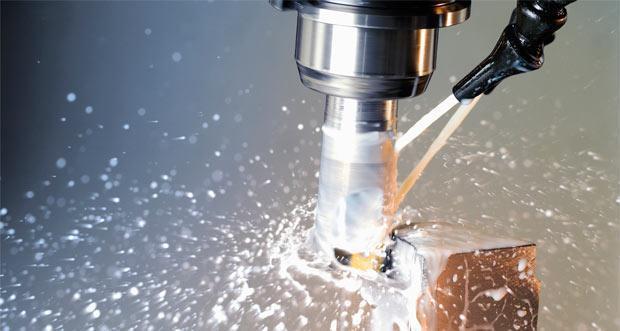
Emulsol. Applications
Emulsols in metalworking
An important quality of any emulsol is a combination of two functions: cooling the working tool (sometimes the workpiece), and reducing sliding friction, which occurs in two cases:
- Mechanical processing (turning, threading, milling, etc.). Such emulsifiers are used for lathes.
- In continuous processes of plastic deformation (upsetting, knurling, drawing). Such emulsols are used as cooling lubricants (coolant) in multi-position automatic punching machines, wire drawing machines, as well as for machines with similar types of metal and alloy stamping.


As the basis of emulsols, usually mineral oils are taken, which are characterized by low viscosity indicators. They can be I-12A, I-20A oils, transformer oil, etc. Soaps of organic acids - naphthenic or sulfonaphthenic - are used as emulsifiers. Recently, emulsifiers have become widespread, which are created on the basis of non-ionic organic products characterized by improved anticorrosive parameters (for example, stearox).
To increase durability, additives are introduced into the composition of industrial emulsols, which are divided into the following types:
- Fatty (reduce the coefficient of friction).
- Anti-corrosion.
- Polishing.
- Antifoam.
- Antibacterial.
For metalworking it is recommended to use emulsols EP-29, ET-2u, OM.


Emulsols in construction
The constantly expanding volumes of monolithic construction provide for a wide scope of installation work, during which concrete is poured into the formwork right on the construction site. In addition, removable formwork is also used when pouring foundations.
The casting performance depends on the complexity of the preparatory work associated with the reinstallation of the formwork elements. Dismantling of its parts is difficult, since the remnants of concrete adhere firmly to the metal elements of the formwork. Previously, conventional fuel oil was used to reduce friction. However, this oil product is highly viscous, flammable, and leaves stains difficult to remove. It was the emulsols that turned out to be the compositions that can be effectively used for formwork.


After the formwork is lubricated with emulsols (for example, brands EGT, EKS-A), a thin film is formed on the surface of the metal parts of the formwork, which is formed by particles of low-viscosity oils dispersed in water or in synthetic compounds. The use of emulsifiers facilitates the dismantling of the formwork from the concrete mass and prevents the development of corrosion processes.
A feature of building brands of emulsols is their stable action at negative temperatures of the outside air.


Watch this video on YouTube